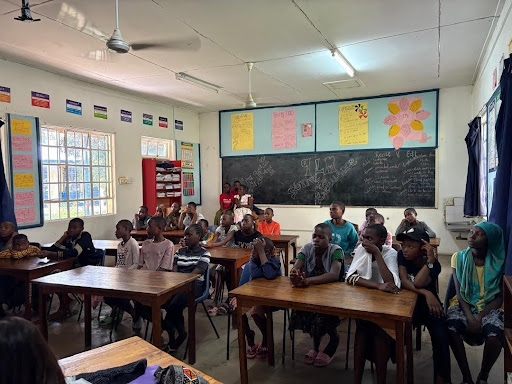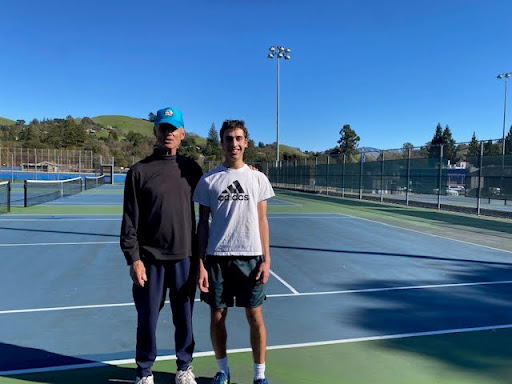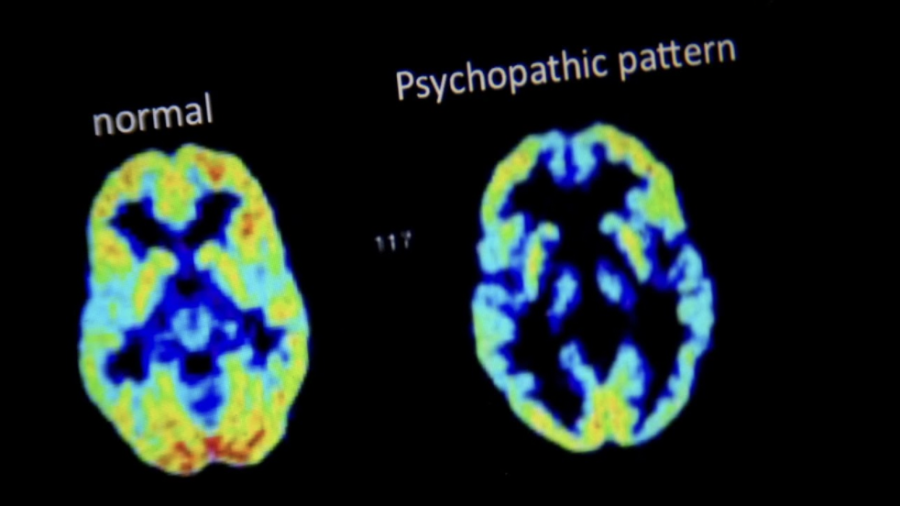Circle Spotlight: Criminal & Forensic Psychology
A positron emission tomography (PET) scan comparing a normal brain and a brain with a psychopathic pattern typical for serial killers. Such images are often analyzed and discussed in the Criminal & Forensic Psychology Circle.
In recent years, criminology—and all things crime— such as procedural dramas, true crime documentaries, books, and podcasts have gained great popularity among many groups, especially teenagers. OHSers are no exception — as a matter of fact, they have created their own small community to discuss and learn about criminal and forensic psychology—two studies that aid law enforcement with catching criminals. Criminal psychology specializes in the study of criminal behavior, whereas forensic psychology focuses on the practice of psychological expertise in law. Just as its name states, the Criminal & Forensic Psychology Circle combines both of these multifaceted fields. Meetings are held every Friday, during which members of the circle participate in various activities, including case studies, games, discussions, and presenting on a criminal of choice.
Elisha Rabley, the founder and leader of the Criminal & Forensic Psychology circle, says that the contemporary procedural drama Criminal Minds was one of the things she drew inspiration from for the circle: “I thought that the concept of the show was really interesting. Criminal Minds gives me the background, and then I do my own research on specifically what I [am] interested in teaching and learning myself.” A lot of Elisha’s friends were interested in criminology as well, which also inspired her to create a space to explore this common interest: “I thought: ‘what better place to get kids together to learn and talk and learn about what we’re all interested in than a circle at OHS?’”
A typical Criminal & Forensic Psychology Circle meeting consists of either a case study on an infamous serial killer, such as Jeffrey Dahmer or Ted Bundy, or a lesson on one of the topics of criminal psychology: psychopathy, the art of lying, interrogation methods, profiling, criminal law, and others. The meetings are informative and engaging, and the information presented is applicable to real life. As Elisha points out, “the certain topics that we cover – they’re real, they happen in real life. There are kidnappings that occur, murders that happen.” She believes that the circle teaches “how to deal with certain situations and how to be aware of these topics.”
Katherine, a member and co-creator of the Criminal & Forensic Psychology circle, was also inspired by some of the crime related media, but finds “real crimes more interesting than hypothetical. Elisha likes … the neuroscience aspects … and the psychology, and I like more of the ‘this is how it actually happened and this is how people solved it’ aspect, which I think works well together.”
Aside from being involved in the creation of the circle, she helps to put together the presentations and materials for the meetings, as she enjoys the “conversations, thoughts, and the ideas people … have after the [presentations].” Sometimes, these conversations transform into debates on topics like the death penalty and its necessity in the U.S. criminal justice system. Such discussions, whether heated and visceral or casual and amenable, always remain engaging and thought-provoking. Plus, they are something students often bond over. “They’re really interesting discussions. If you and other people are interested in one thing, it helps spur friendship,” says Elisha.
Other than participating in discussions, members of the circle spend time profiling notorious serial killers or even coming up with criminal defense strategies, which gives them a chance to demonstrate their acumen and knowledge of criminal and forensic psychology. Such activities are also beneficial to the development of sundry important skills. According to Katherine, studying criminal psychology means that “you have to be paying attention and trying to understand something on a deeper level because it’s not all on a surface level … you have to look at it from different angles and try to figure out more than what meets the eye.”
Katherine, like many other members, hopes that the circle will help her to pursue her “genuine interest” in criminology and gain “enough knowledge to maybe continue this as a career in the future.” She jokingly adds that because of the circle, she now aspires to become a “certified psychopath spotter.”




